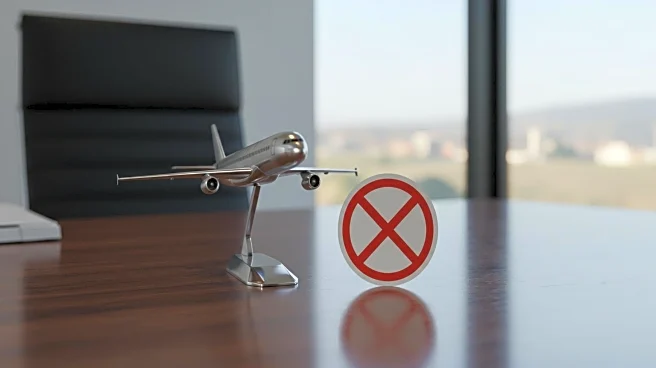What's Happening?
Air Canada has been forced to cancel nearly 2,600 flights due to a strike by its flight attendants, who have defied government orders to return to work. The strike began on Saturday after contract negotiations broke down, and the union has refused to comply with orders from a federal tribunal to resume work. The Canadian Union of Public Employees, representing 10,000 flight attendants, remains defiant despite the strike being declared unlawful. The strike has affected over 500,000 customers, and Prime Minister Mark Carney has expressed disappointment over the impasse.
Why It's Important?
The ongoing strike highlights the challenges faced by Air Canada in maintaining labor relations and operational stability. The disruption has significant implications for the airline's reputation and financial performance, particularly during the busy summer travel season. The strike also underscores broader issues in the airline industry regarding fair compensation and working conditions for flight attendants. The government's involvement in attempting to resolve the strike reflects the importance of the aviation sector to the national economy and the need for effective conflict resolution mechanisms.
What's Next?
As the strike continues, Air Canada is likely to face increased pressure to reach a resolution with the union. The potential for fines or criminal charges against striking workers adds complexity to the situation. The government may explore further interventions to facilitate negotiations and ensure the resumption of flights. Stakeholders, including passengers and industry experts, will be watching closely for developments that could impact travel plans and the airline's financial outlook.









